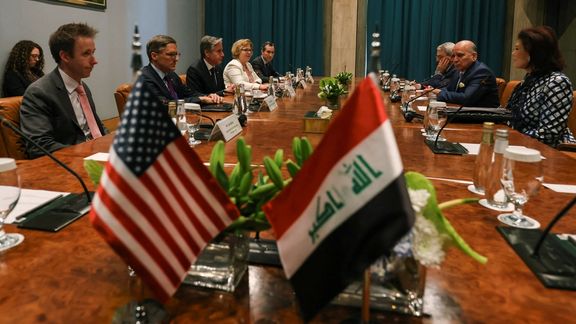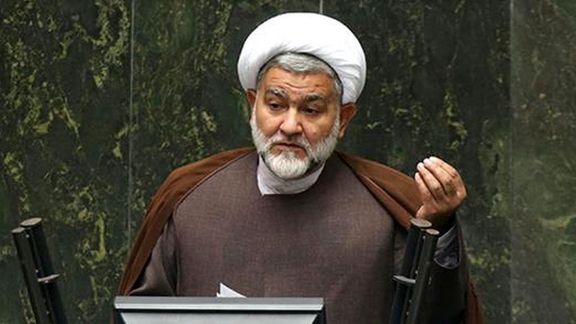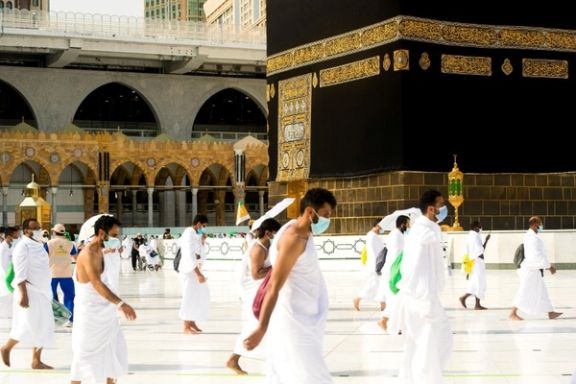How Would US Allow Iraq To Pay Its $2.7b Debt To Iran?

The United States is said to have given Iraq permission to pay $2.7 billion of its debts to Iran but the mechanism by which the money would be released remains murky.

The United States is said to have given Iraq permission to pay $2.7 billion of its debts to Iran but the mechanism by which the money would be released remains murky.
Iraqi Foreign Minister Fuad Hussein was reportedly given the clearance during a meeting with US Secretary of State Antony Blinken on the sidelines of the Riyadh Conference on June 8, Reuters cited a senior Iraqi official, who spoke on condition of anonymity.
The Iraqi foreign ministry source said that the funds will be transferred through the Commercial Bank of Iraq and Iranian officials have confirmed that the money will be used for Iranian Hajj pilgrims' expenses and foodstuffs imported by Iran.
Iranian officials have claimed that the money in Iraqi banks could be as much as $10 billion or more. Yahya Al-e Eshaq, the head of the Iran-Iraq chamber of commerce, was quoted as saying by the local media Saturday that the Iraqi debt is between $7 to $8 billion but only $2.7b has been agreed to be released and that part of the funds has been earmarked for pilgrims and another portion has been used to purchase basic goods.
On Monday, Iranian lawmaker Hassan Norouzi claimed that the money will be provided to the Hajj pilgrims in forms of subsidies to buy dollars at a slightly lower rate than free market. However, he criticized the decision, saying that the money belongs to all Iranians and not a small number of affluent individuals, who can afford the Hajj pilgrimage in the first place.

Norouzi, who is the vice-chairman of the Judicial and Legal Committee of the parliament, pointed to the country’s dire economic situation, calling the scheme "a definitely wrong move."
"This money belongs to the entire nation and should be spent for the sustainable goals of the Iranians,” he said. It is better “to spend the money on Tehran’s water, so that residents of the capital would not have to drink water contaminated by nitrate.”
The annual Islamic pilgrimage to Mecca, Saudi Arabia -- the holiest city for Muslims -- is a mandatory religious duty that must be carried out at least once in their lifetime by all adult Muslims who are physically and financially capable of undertaking the journey. This year Hajj ceremonies will be held around late June through early July and the average price for Iranians to go to the journey is about $5,000, a rate set by the host country Saudi Arabia.
The key condition for the pilgrimage is physical and financial ability of the applicants. If the government is supposed to subsidize the journey, then it is not a real pilgrimage.

The Iranian government organizes and controls the Hajj pilgrimage, including paying Saudi Arabia in US dollars for the expenses of each traveler, and providing dollars to pilgrims to spend during their journey. But instead of charging each pilgrim the full amount based on high free market exchange rate, it provides these dollars at a low preferential rate, in effect subsidizing the pilgrimage.
However, the total amount of the subsidy would still be a tiny fraction of the $2.7 billion that is reportedly about to be unblocked, considering that the number of the pilgrims is at most 80,000 people. The total subsidy the government would spend on pilgrims this year will be around $200 million.
The question is how Iraq plans to release the $2.7 billion including whatever has been designated for pilgrims. Officials of all three countries are silent on the issue. If a few hundred million dollars is set aside for pilgrims, would it be transferred to Saudi Arabia as payment for expenses? Or cash dollars will be provided to the Iranian government, which would violate the purpose of US banking sanctions to begin with.
Multiple reports this week suggest the US is offering financial incentives to the Islamic Republic in exchange for Tehran slowing its production of enriched uranium. Late in May, Iran International ported that the United States was offering to release Iran’s funds held in Iraq and South Korea in exchange for Tehran to show more flexibility on issues related to its nuclear program, and the release of American dual nationals held hostage in Iran.
A week later, on June 7, Haaretz confirmed the report saying that the United States was offering to release $20 billion in frozen Iranian funds — currently held by South Korea, Iraq, and the International Monetary Fund — in exchange for Iran limiting further production of high-enriched uranium.
Another report on June 8 by Middle East Eye (MEE) echoed much of Haaretz’s reporting but added that the administration would allow Iran to export an additional one million barrels of oil per day, which would likely require the president to issue a national security waiver.
Iranian and American officials have rejected the reports, but – according to The Foundation for Defense of Democracies (FDD) -- questions remain about whether an agreement may proceed without official text or notification to Congress, as required under existing law.
The head of the FDD, Mark Dubowitz, says: “The Biden administration hopes that Tehran will be more amenable to a ‘longer and stronger’ deal after getting major nuclear and economic concessions in exchange for a ‘shorter and weaker’ arrangement. This is an illusion. Iranian leaders understand power and leverage better than President Biden and his team do. The emerging ‘less for more’ deal is the worst deal of all.”
“The administration may be looking to evade congressional review by trading billions of dollars to Iran in exchange for a temporary halt to higher levels of enrichment, all without a written agreement or public acknowledgment. Paying Iran to sit patiently on the nuclear threshold won’t stop Iran from developing nuclear weapons, but it will subsidize attacks against Americans, Israelis, Ukrainians, and Iranians," said Richard Goldberg, a senior advisor at the FDD.